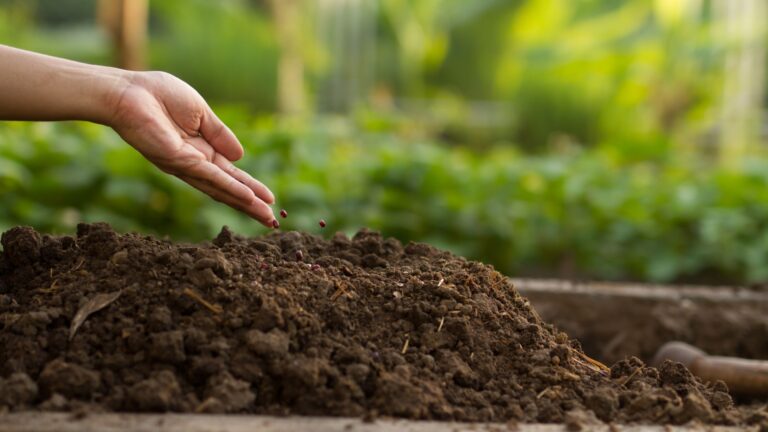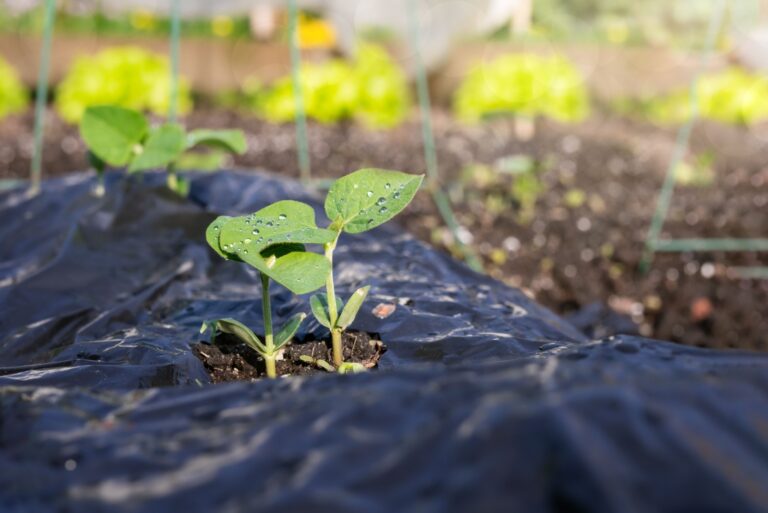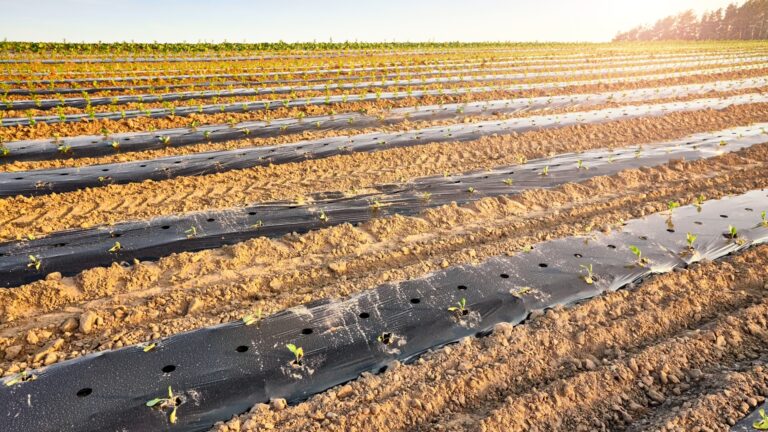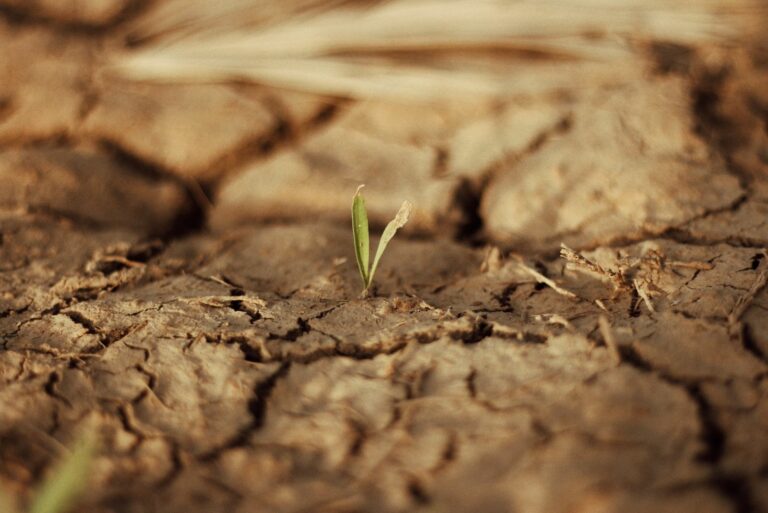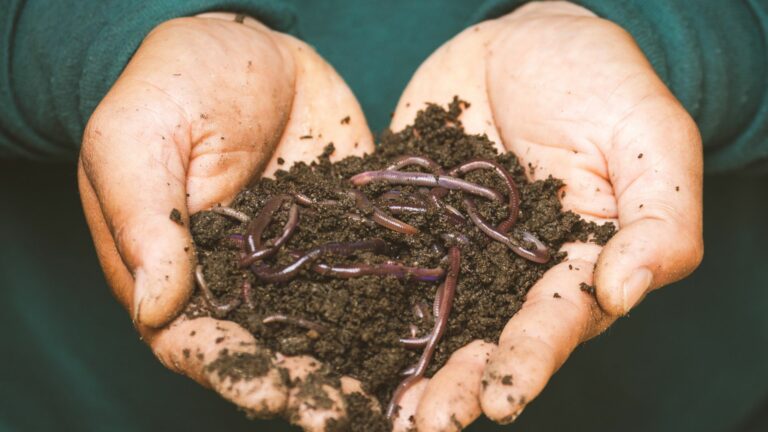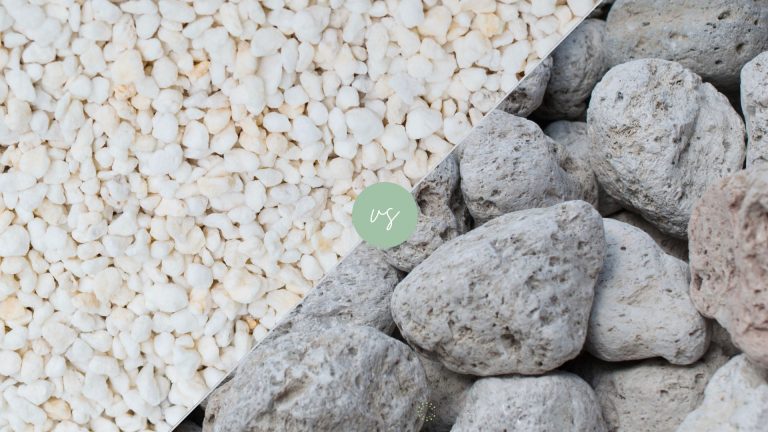The Fall Soil Prep Step That Helps Oregon Gardens Thrive In Spring
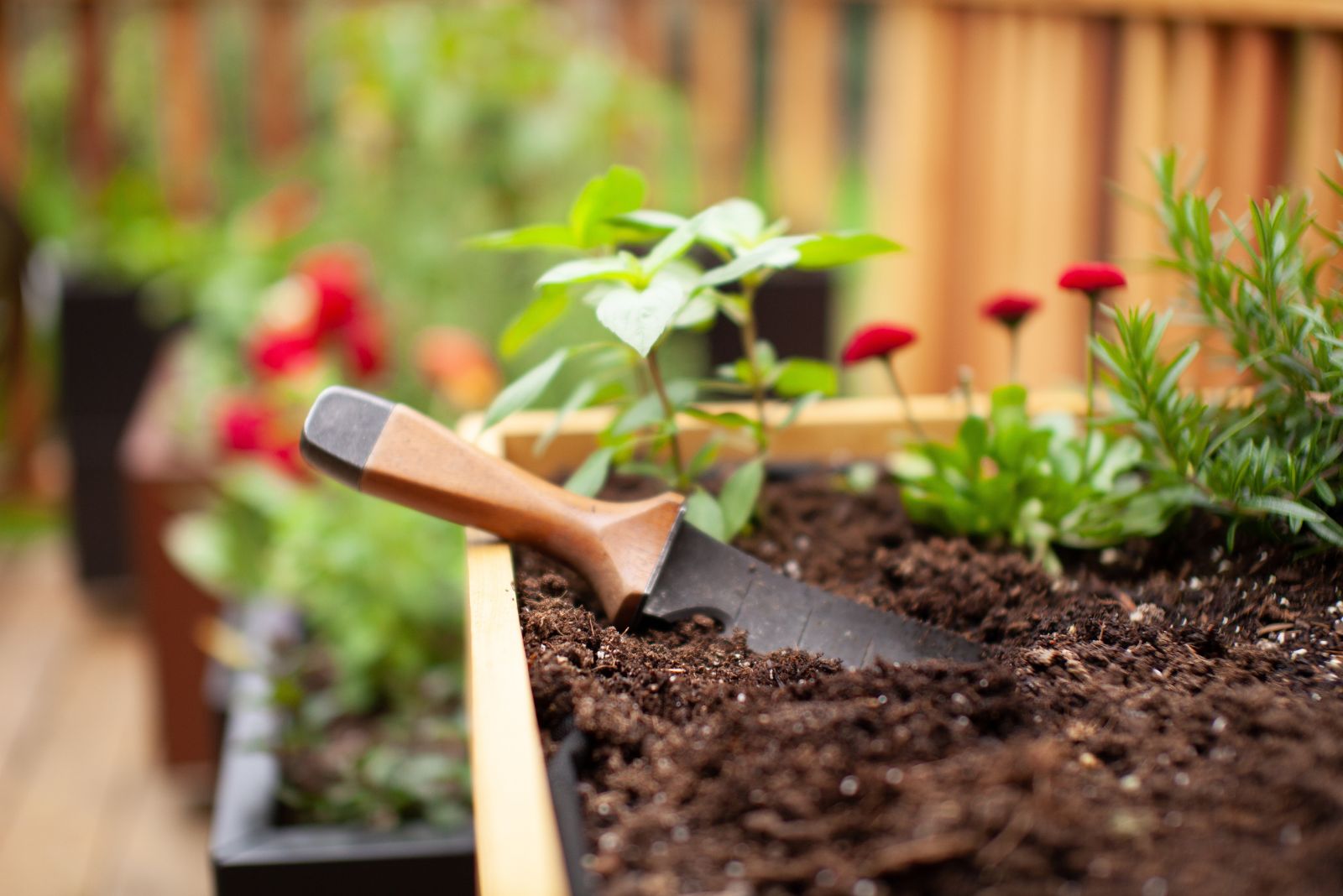
Many Oregon gardeners reach for compost and leaves the moment fall settles in, long before spring even crosses their minds. The soil enters a quiet season, yet the work done now shapes every sprout and blossom that appears months later.
A rich layer of organic matter softens tired ground, feeds the microbes that drive healthy growth, and protects roots from the chill that sweeps through the region. By loading the soil with natural goodness before winter arrives, gardeners give their beds a powerful head start, turning spring into a season of strong shoots and vibrant color instead of slow recovery.
Adding Organic Matter In Fall Transforms Your Garden Soil
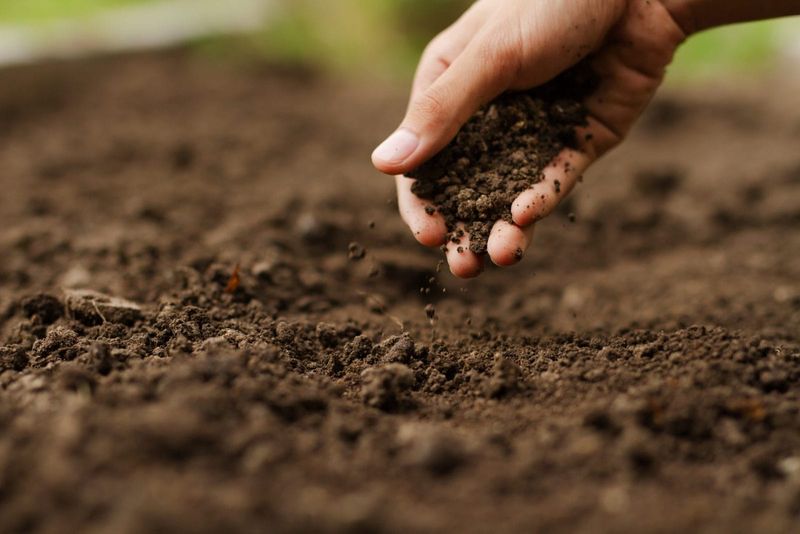
Hidden beneath the surface, a bustling world of life awaits. Adding organic matter in fall transforms your garden soil into a thriving habitat for various organisms. These creatures, from earthworms to beneficial microbes, play a vital role in nutrient cycling.
They break down organic material, releasing essential nutrients back into the soil. This process enriches the soil, setting the stage for vigorous plant growth in spring.
The increased diversity of soil life not only supports plant health but also enhances soil fertility naturally. Embracing this natural cycle helps create a robust and resilient garden ecosystem.
Improves Soil Structure And Drainage
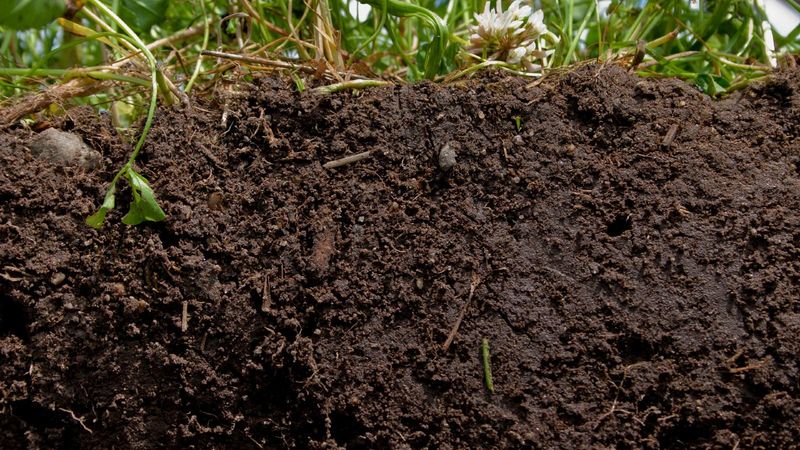
Organic matter works like magic to transform heavy clay or sandy soils common throughout Oregon. When you mix in compost or aged manure, tiny particles bind together to create better air pockets.
Water drains more efficiently instead of pooling on top or rushing straight through. Plant roots can spread easily through this improved texture, reaching nutrients and moisture they need to grow strong.
By spring, your soil becomes a perfect home for vegetables, flowers, and shrubs to flourish.
Provides Essential Nutrients For Spring Growth
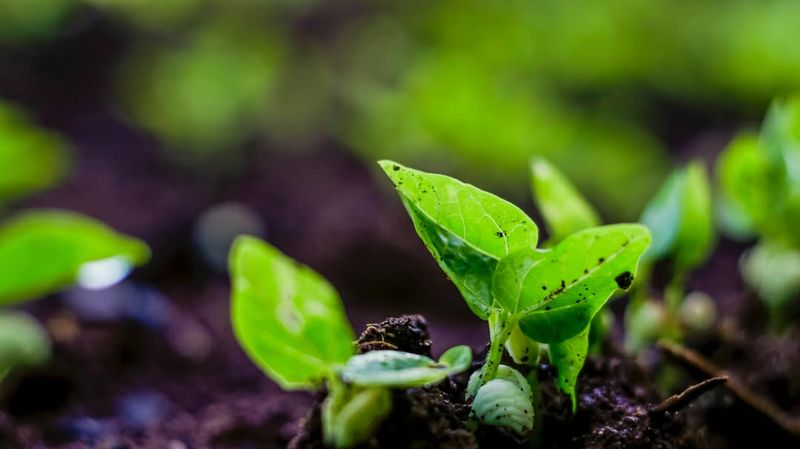
Think of organic matter as a slow-release vitamin for your garden. Throughout winter, beneficial microorganisms break down leaves, compost, and other materials into nutrients plants can actually use.
Nitrogen, phosphorus, and potassium become available right when spring bulbs and seedlings need them most. Unlike chemical fertilizers that wash away quickly, organic matter releases food gradually over months.
Your plants get steady nourishment without the risk of burning delicate roots or creating nutrient imbalances.
Protects Plant Roots From Freezing Temperatures
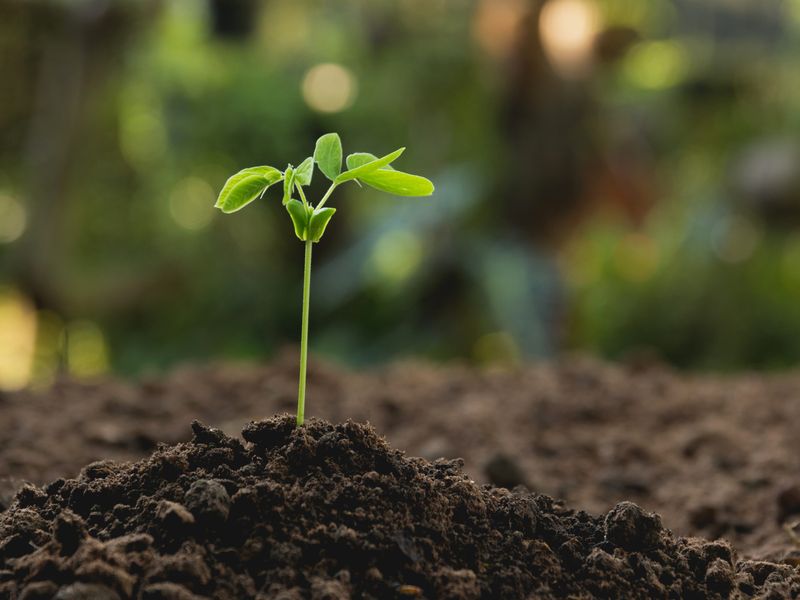
Oregon winters can surprise gardeners with sudden cold snaps that damage unprotected plants. A generous blanket of organic matter acts like a cozy quilt over your garden beds.
Soil temperatures stay more stable underneath, preventing the freeze-thaw cycles that heave plants out of the ground. Perennials, bulbs, and even tender shrubs survive harsh weather much better with this insulation.
Come spring, you will find fewer dry plants and more vigorous growth from roots that stayed safe all winter long.
Encourages Beneficial Earthworms And Microbes
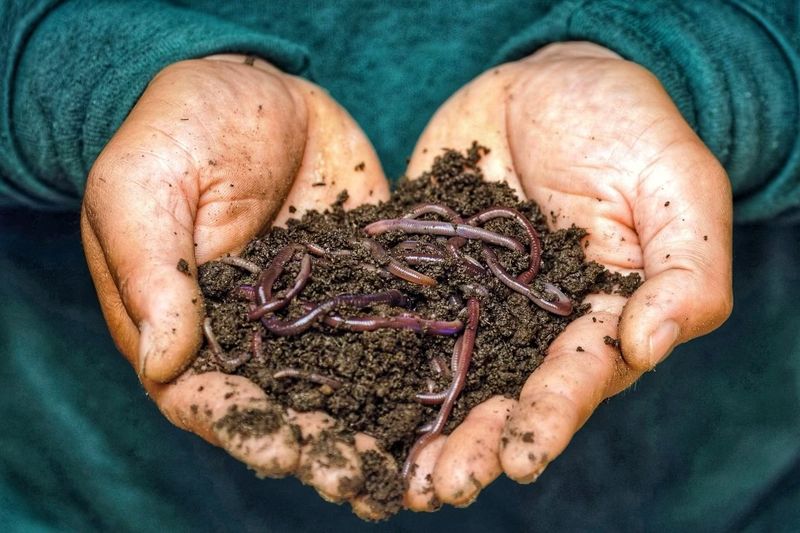
Did you know earthworms can process their own body weight in organic matter every single day? Adding compost and leaves in fall creates an all-you-can-eat buffet for these hardworking creatures.
As they munch and tunnel, earthworms create channels that improve drainage and aerate soil naturally. Beneficial bacteria and fungi also multiply rapidly, breaking down organic materials into plant-available nutrients.
This underground ecosystem does the heavy lifting, making your spring garden healthier without extra work from you.
Reduces Weeds And Prevents Soil Erosion
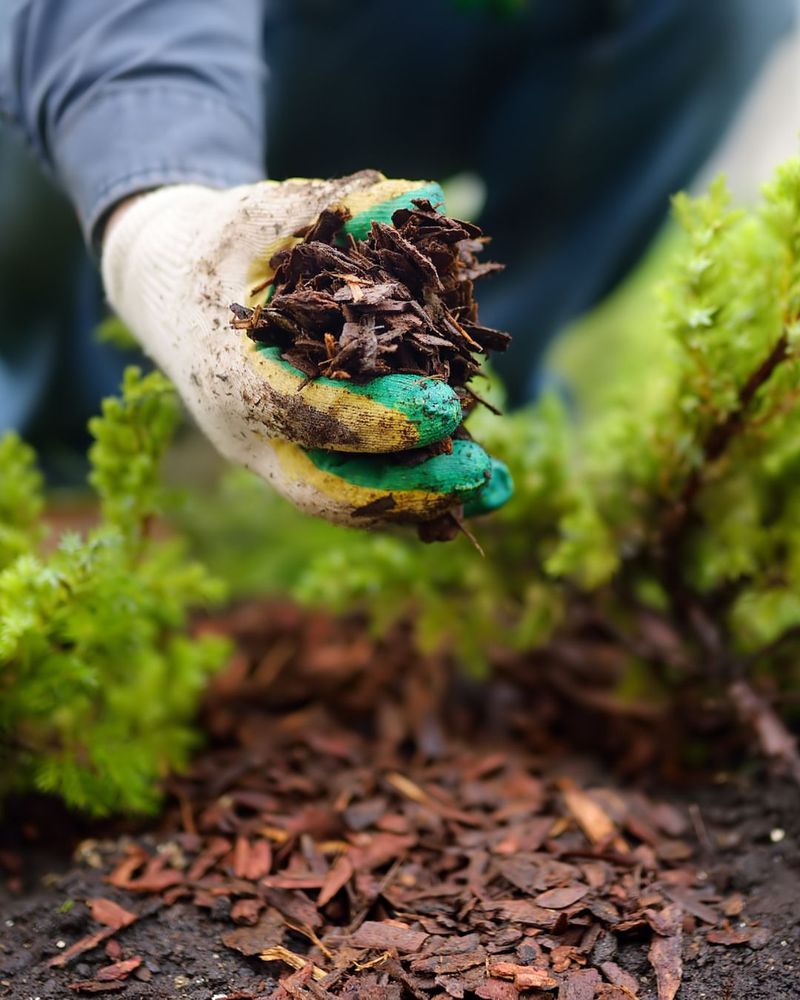
Bare soil in fall invites trouble from both weeds and Oregon’s heavy winter rains. A substantial organic layer blocks sunlight that weed seeds need to sprout and establish themselves.
At the same time, this protective covering shields topsoil from washing away during storms. Rain falls gently onto mulch instead of pounding directly on exposed earth.
By spring, you will spend less time pulling weeds and more time enjoying a garden with intact, nutrient-rich soil ready for planting.
Retains Moisture For Dry Spring Months
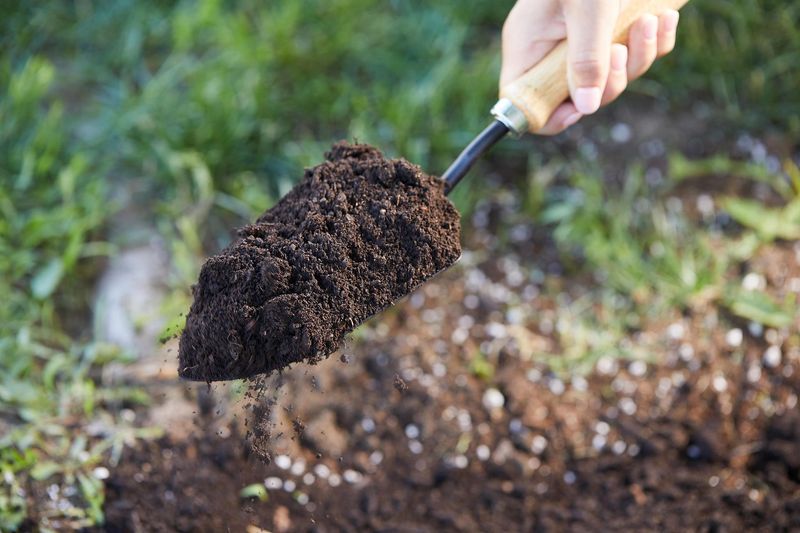
Oregon springs can turn surprisingly dry just when young plants need consistent water. Organic matter applied in fall acts like a sponge, absorbing winter rain and holding it in the soil.
This moisture reserve stays available through drier periods, reducing how often you need to water. The mulch layer also slows evaporation from the soil surface on sunny days.
Your plants develop deeper, stronger root systems when they can count on steady moisture rather than experiencing drought stress between waterings.
Creates Healthier Plants With Better Disease Resistance
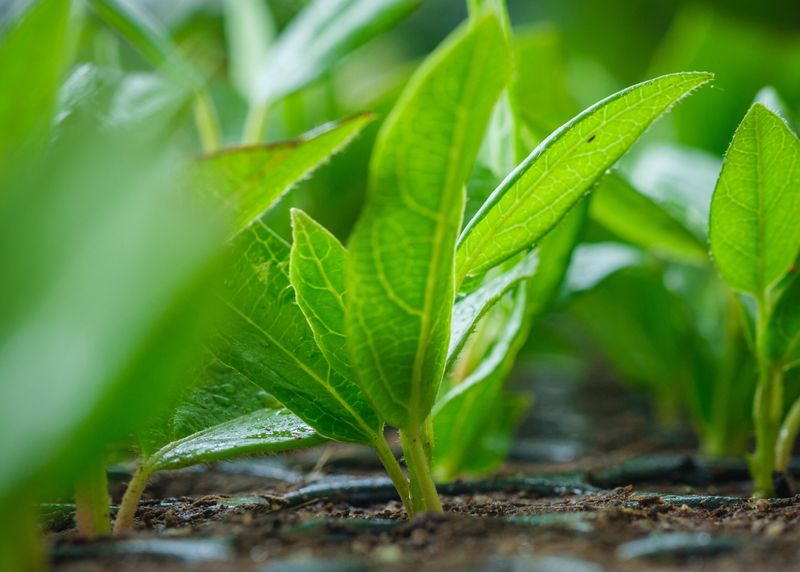
Strong plants start with strong soil, and organic matter builds that foundation naturally. When roots access balanced nutrition and proper moisture, plants grow with thicker cell walls and more robust immune systems.
Beneficial microbes in compost-enriched soil actually compete with disease-causing organisms, protecting plant roots from infections. Healthier plants also recover faster from pest damage or weather stress.
Your spring garden will show the difference with fewer yellow leaves, less fungal problems, and more flowers or vegetables than ever before.

